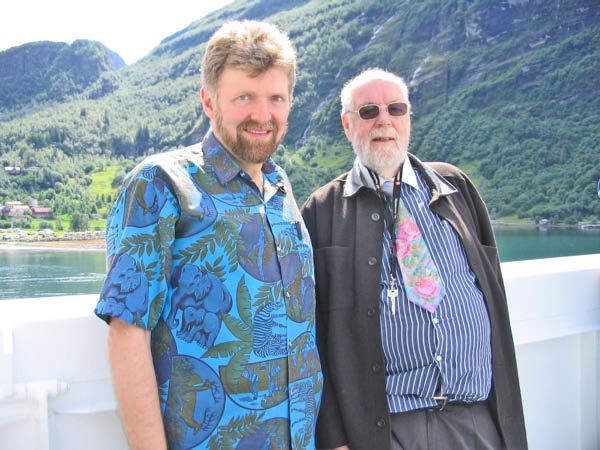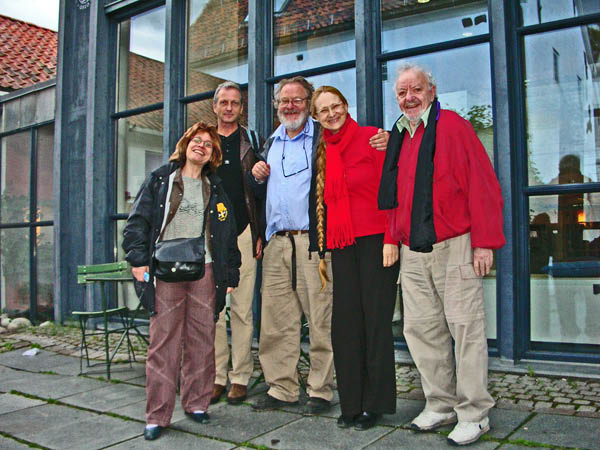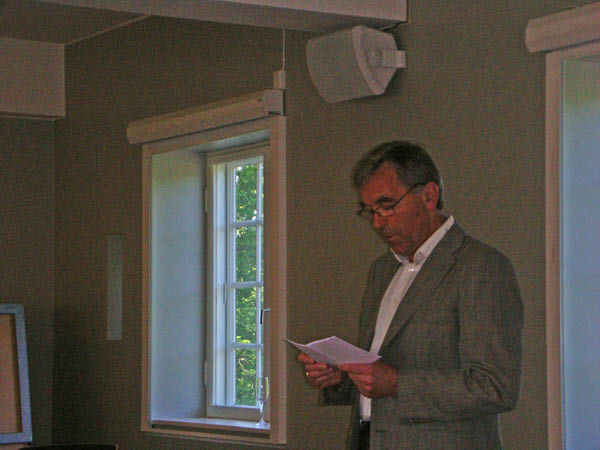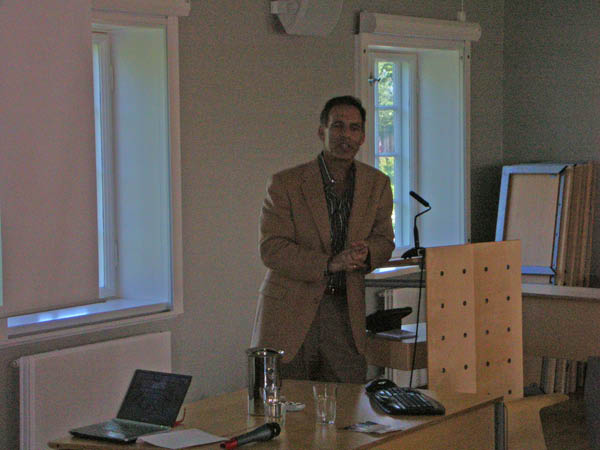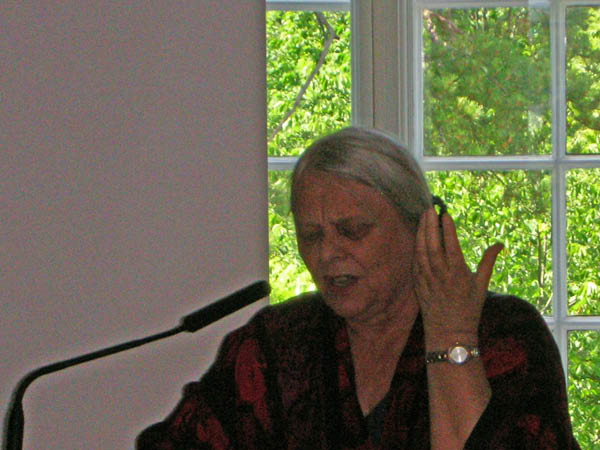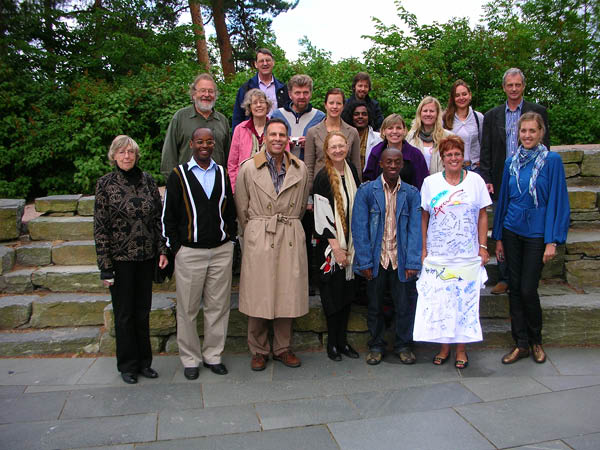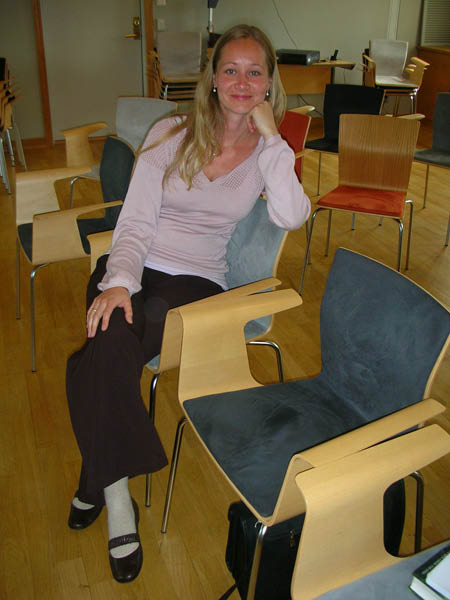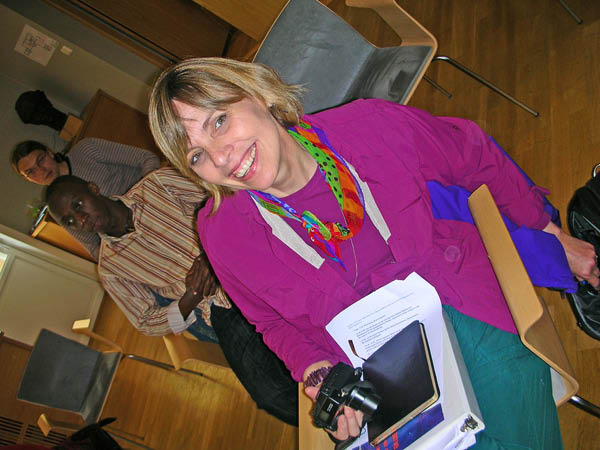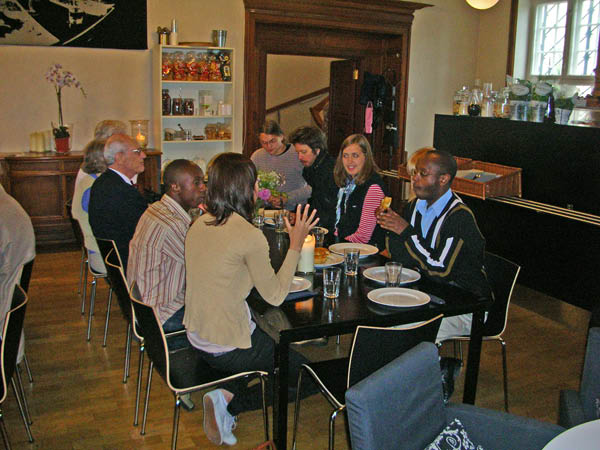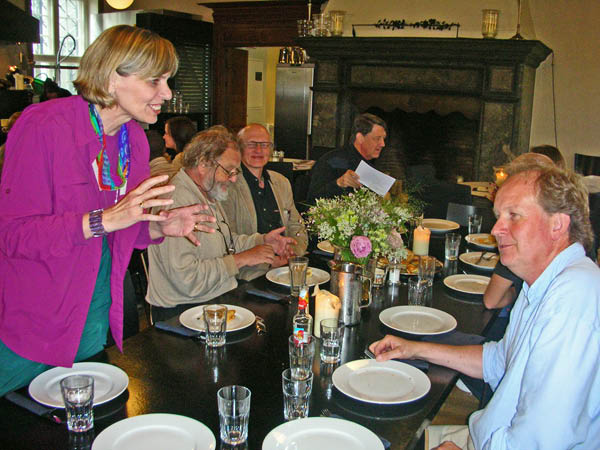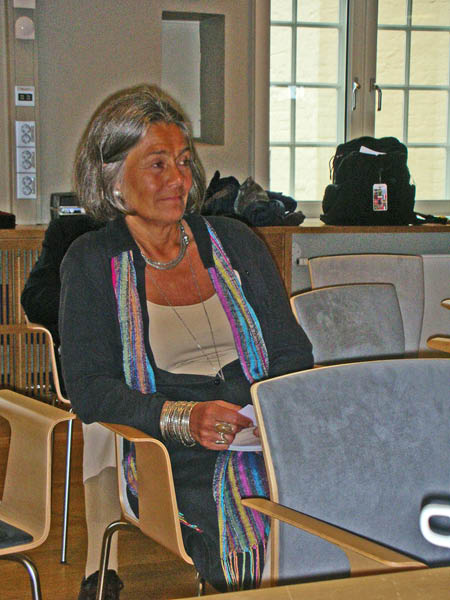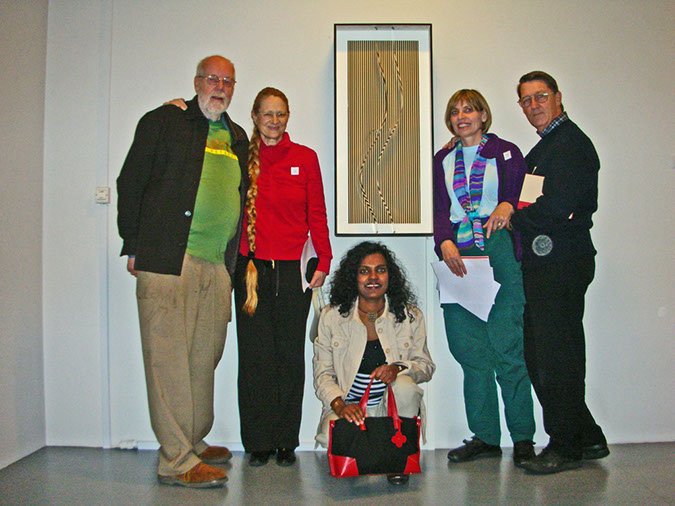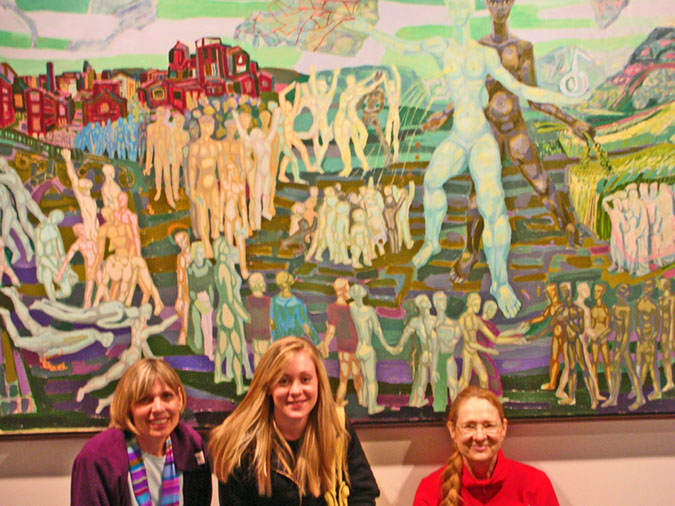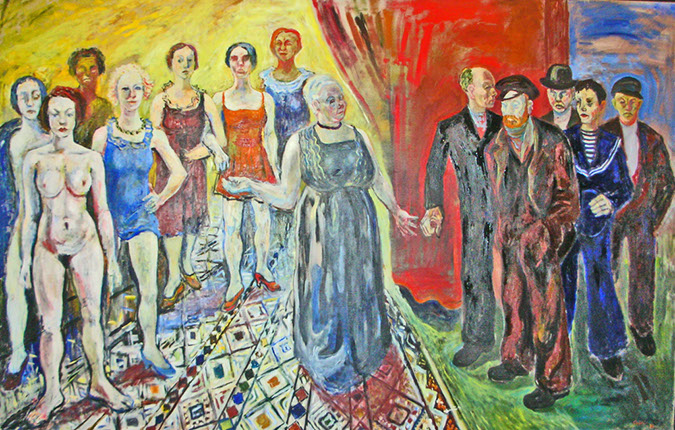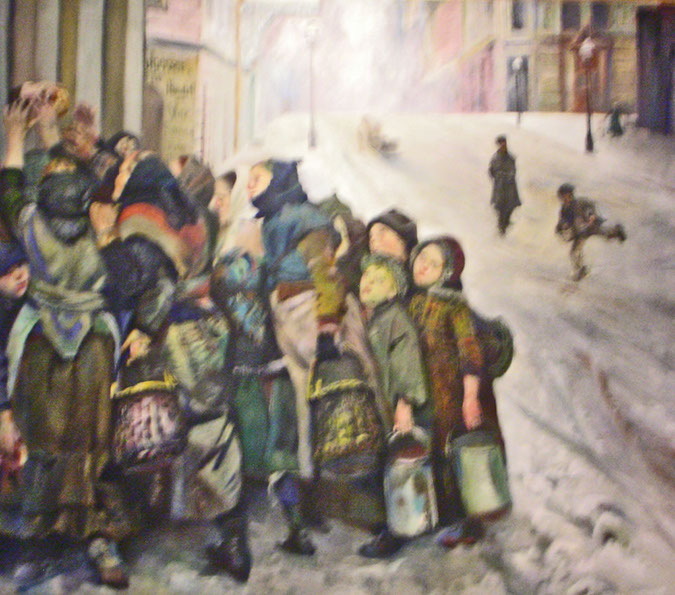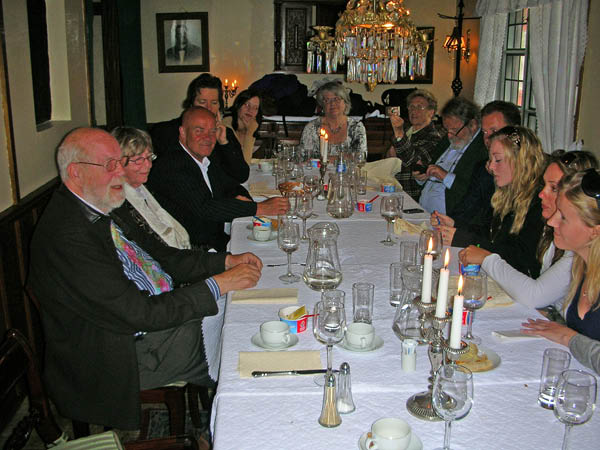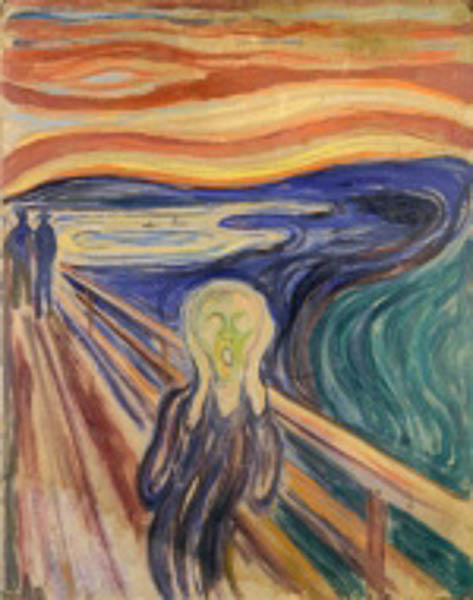Newsletter Nr. 11 (July 2008, subsequent to our 11th Annual Conference of Human Dignity and Humiliation Studies in Norway, June 2008)
Compiled by Evelin Lindner, in Norway (July 2008)
(Note: This newsletter is written in British English, since this conference took place outside of the U.S. In our NY workshops, we usually use American English.)
Contents
• Pictures
• Thanks!
• Messages from Our Participants to Our Participants
• Messages from Our Network Members to Our Participants
• News from the Global Dignity & Humiliation Mapping and Assessment Initiative Session
• News from the Environmental Psychology Session
• Announcements
• What Is the Aim of our Work?
• Welcome Again!
Pictures
(Important note to our conference particants: During our conferences, we always make an effort to ask for your permission to have your pictures posted on this website. However, you may have overheard or misunderstood our question, or you may have changed your mind since, either in total or for specific pictures/videos, please let us know! Thank you! Since we wish to walk the talk of dignity, it is very important for us to do our utmost in respecting everybody's privacy. We refrain from gathering written permissions from you during our conferences, since we value the building of mutual trust in relationships, and we also would like to refrain from contributing to an ever more bureaucratic and legalistic society.)
|
23rd June -1st July 2008, 11th Annual Conference of Human Dignity and Humiliation Studies (HumanDHS) in Norway as part of the Wergeland Year for Human Dignity |
These are the pictures dear Svanibor Pettan made. Please see Lasanthi Manaranjanie, Svanibor, and Kjell Skyllstad on the pictures above. Please click on the pictures or here to see all the photos from Svanibor's camera. Please see also videos by Svanibor: 1. Midsummer Eve Party, 23rd June 2. Midsummer Eve Party, 23rd June 3. Trio Mediaeval members Linn Andrea Fuglseth, Anna Maria Friman singing for us, 25th June. |
These are the pictures dear Brian Lynch selected from the collection of photos he created of our conference (see Brian on the picture to the right), see also http://www.kodakgallery.com/. Please click on the pictures or here to see more photos from Brian's camera. Please see also the videos from our conference by Brian Lynch. |
|
Here (and further down), you see the pictures from Evelin's camera, for each day separately - here you see the photos of Monday, 23rd June 2008: Midsummer Eve Party on Bygdøy. |
Tuesday, 24th June 2008, at the Centre for Studies of Holocaust and Religious Minorities in Oslo. Please click on the pictures or here to see more photos from Evelin's camera. |
Wednesday, 25th June 2008, at the Centre for Studies of Holocaust and Religious Minorities in Oslo. Please click on the pictures or here to see more photos from Evelin's camera. |
Thursday, 26th June 2008, at the Centre for Studies of Holocaust and Religious Minorities in Oslo. Please click on the pictures or here to see more photos from Evelin's camera. |
Friday, 27th June 2008, at the Centre for Studies of Holocaust and Religious Minorities in Oslo. Please click on the pictures or here to see more photos from Evelin's camera. |
28th June 2008, Norway in a Nutshell - Oslo-Myrdal-Flåm-Gudvangen-Stalheim-Voss-Bergen. Please click on the pictures or here to see more photos from Evelin's camera. |
Sunday, 29th June 2008 |
Monday, 30th June 2008, on Hurtigruten, MS Finnmarken - celebrating one birthday and two wedding anniversaries. Please click on the pictures or here to see more photos from Evelin's camera. |
Tuesday, 1st July 2008, Trondheim - Nidaros Dome and Restaurant 'Grenaderen'. Oeyvind Eikrem joined us, Vegar Jordanger, Hildegunn Nordtug, Kjell Oversand (founder of the Trondheim World Music Ensemble), Kjell's second sister came, with her niece Sissel. Please click on the picture or here to see more photos from Evelin's camera. |
Wednesday, 2nd July 2008, Oslo, with Linda Hartling, Rick Slaven, and Finn Tschudi: |
|
Thursday, 3rd July 2008, Oslo, with Linda Hartling, and Rick Slaven From left: 1. University in Oslo (Universitetet i Oslo), Blindern campus, which is situated about 5 kms from downtown Oslo; here you see the University Library (also known as Georg Sverdrup's house) 2. Department of Psychology (Psykologisk institutt) 3. The Munch Museum (Munch museet), Scream (Skrik) 4. Some traditional Norwegian food: ekte geitost with flatbrød, nøkkelost, multe berries, pølse med lompe... Please click on the picture or here to see more photos from Evelin's camera. |
Friday, 4th July 2008, Oslo, with Linda Hartling, and Rick Slaven From left: 1. Henie Onstad Art Centre (Sonia Henie Kunstsenter); 2. Aker Brygge, celebrating our conference; 3. Aker Brygge, with Akershus Castle (Akershus Festning) in the background, which houses the Norwegian Resistance Museum. Please click on the picture or here to see more photos from Evelin's camera. |
Stephanie Heuer's pictures, 26th and 27th June 2008. Please click on the pictures to see more photos from Safa's camera. |
With Eva Christine Hyge in Oslo on 11th July 2008. Please click on the pictures or here to see them larger. |
With Ragnhild S. Nilsen in Oslo Ekeberg, 15th July 2008. Please click on the pictures or here to see both photos larger. |
Saying good bye and thanking Maria Rosvoll on 16th July 2008 at the Holocaust Centre. Please click on these photos or here to see the pictures larger. |
Dear Friends!
Thanks!
We had a wonderful conference in Norway!
It was part of the Wergeland Year for Human Dignity and dedicated to the memory of Don Klein.
Our 11th Annual HumanDHS conference was rather different to our other conferences, not least because every day had a very distinct flavour - new people joined us everyday, and we changed the location (from Oslo, to Bergen, to the Hurtigruten ship, to Trondheim), so that each day was like a little separate conference in itself, with a different feel to it.
Please let me begin by sharing with you my deep gratitude to Linda Hartling. Without her wisdom, love, care, and huge investment of time, our network and our conferences would not be there.
May I express my sincere gratitude and appreciation furthermore to all of you who joined our 11th Annual Conference of Human Dignity and Humiliation Studies (HumanDHS) in Norway, June 2008! You ALL made our conference a unique and extremely exiting experience! As after our previous conferences, I felt as if I went through a hurricane, so many creative contributions 'swirled' through our conference! I feel that I can hardly think a clear thought just now!
We apologise to all those who could not participate in our conference because Norway is among the most expensive places on the globe. We are very aware of the problem of affordability and accessibility (which has a humiliating effect on many), and we do make a conscious effort to also have conferences in more affordable places. In the future, we hope that local groups will organise conferences that are more easily accessible for people in their respective region.
I would like to thank our wonderful hosts, Odd-Bjørn Fure, Director of the Centre for Studies of Holocaust and Religious Minorities in Oslo, Norway, and Kjell Skyllstad, Professor Emeritus at the Department of Musicology (Institutt for musikkvitenskap) at the University in Oslo, Norway.
Please let me furthermore express special thanks to Finn Tschudi, Maria Rosvoll, Einar Strumse, Salman Türken, Hildegunn Nordtug, and Rick Slaven for their untiring support. Maria and Salman have donated hundreds of hours to us without asking for any return.
A very very warm thank-you to ALL PARTICIPANTS!
There are no words to thank you for your amazing contributions!
Oslo, July 2008, Evelin, on behalf of our entire network.
Messages from Our Participants to Our Participants
Erga Netz kindly wrote (30th June 2008):
Hi Evelin -
Many thanks for your kind words! It was a great experience joining you - even shortly - for the conference! We look forward to seeing you (and all) again soon!
Enjoy the rest of the conference!
Hope you managed to screen How to: Be or not to Be ?
Greetings and love - also from Izzy -
ErgaLinda Hartling kindly wrote (5th July 2008):
I am so thankful to have had the opportunity to meet many new and returning members of the HumanDHS network at this year's conference! I was deeply touched and truly inspired by the rich diversity of our group and the wonderful work each individual is doing to make a better world for all people!Rick Slaven kindly wrote (5th July 2008):
The HumanDHS Norway conference was impressive and truly diverse, with excellent presentations at the Holocaust Centre, wonderful Open Space Sessions on a boat, and incredible musical performances. I especially remember Jack Goldstone's presentation on the international effects of humiliation, the presentation on housing specifically designed for the homeless, and a proposal to assess humiliation in Kosovo and Palestine. This was an excellent meeting in an unforgettable setting.Anne Wyatt-Brown kindly wrote (5th July 2008):
The Oslo conference was remarkable. Everyone had a great time, and we learned a lot from our Norwegian colleagues. Because the conference was small, we had a chance to get to know participants better than in a larger one. Those of us who stayed at the MS Innvik ate breakfast together and talked in the evening after the official sessions were over. The cruise of the fiords was splendid, and the scenery spectacular. We also had informative sessions on board the MS Finnmarken, including some remarkable open space ones. We went sightseeing in Bergen and Trondheim led by Kjell Skyllstad. I think most of the participants would agree that this was one of the best conferences we have ever attended.
AnneBertram Wyatt-Brown kindly wrote (5th July 2008):
Dear Evelin: I wish to thank you and Kjell Skyllstad for the simply splendid conference. You are both to be highly congratulated on a meeting that was both stimulating and enlightening. I have some articles that might be added to the website. I will be sending them to Linda as I don't know who is running the site or the journal for that matter.
Best Wishes, BertJack Goldstone kindly wrote (6th July 2008):
Dear Evelin,
...
I am very grateful to you for the warmth of your welcome to both Gina and myself. I am deeply impressed with the people you have drawn to your network, and to your commitment to bringing greater dignity to people facing hardship and oppression throughout the world.
...
Warmest regards,
Jack G.Stephanie Heuer kindly wrote (10th July 2008):
Dearest Evelin,
I have been thinking so much of the conference, connections, ideas to action, and how to summarize all that I had the great honour of participating with. Thank you for the opportunity of presenting my work with 'Dignity Rocks!', the seminar strategy, and most recently the concept of 'BE THE ARROW', which grew out of seeds planted at our conference in Costa Rica by you and Don's work with me there (his private time with me was a turning point in my work and personal development).
The presentations this year were enriching, and I will discuss the three that touched me most personally, which I have reflected on and followed up with since the conference. First, the presentation by Dr. Jack Goldstone was truly a breakthrough for our organization, and our efforts. I think he pulled together in his historical approach, many elements of violent conflict relating to humiliation and dignity issues. The article he brought from Tom Friedman specifically on these issues, gives me hope that some mainstream media attention to these ideas is happening. Preserving, protecting, and promoting dignity should be a valued concept that resonates in global communities as part of an inherent 'bill of rights', so to speak. I have since followed up with Jack, ordering his new book, as well as his other previous book. I hope to connect with him if I travel on a seminar or book signing tour in that region.
I found Finn Tschudi equally enriching in his presentation on finding Mandela's and the Ubuntu philosophy. It took me to the internet to google the definition and understand the values behind the word. I pulled this out of Wikipedia, and have been reading many materials ever since. Finn's presentation flowed with his thoughts, and I respected his way of making a subject so personal, with the story of how he too found he could be the humiliator in his past. It is important to have these stories, these flowing morphing thoughts and I was touched by his sincerity. Below is the definition I pulled from wikipedia;
A person with Ubuntu is open and available to others, affirming of others, does not feel threatened that others are able and good, for he or she has a proper self-assurance that comes from knowing that he or she belongs in a greater whole and is diminished when others are humiliated or diminished, when others are tortured or oppressed.
The presentations from Einar Stumse and Aashild Hauge regarding Enviromental Psychology was again, something new but vital to understanding the correlations between enviroments, dignity, and how humiliating 'houselessness' and 'homelessness' can be. Poverty, and the implications around it, can be devastating to one's 'self', one's pride, and addressing the enviroment in relationship to human dignity, is something I hadn't thought about much. I especially found the work done with reformed convicts and addicts inspiring. I think there are many elements to explore in this area, and I was fascinated with the idea of creating a document to present to city planners for more dignified approaches to housing. This is a very new field of thought and I have since researched some of the articles and will continue my interest in this new and emerging field.
On a personal note, this was a special and wonderful experience for me. Each time I attend one of these seminars, I take with me new connections, inspirations, and caring approaches to change. Taking ideas to action is always challenging, however, I see through our organization that many people have good working models to do so. You and Linda always inspire me in new ways, and old ways as well. Our appreciative inquiry approach, our commitment to a different approach to an organizational mindset, and our relentless attempt to keep from 'telling' people how and what to do in this field of work, are just some of the examples that come to mind.
Please know Evelin how much I appreciate the support, advise, and love you have shown me over the years. I will be sending the photos of you with the t-shirts to the principal of Andrew Hill high school along with a grant request. Showing that the students cared enough to sign a commitment to 'be the arrow' from a violent mindset to that of compromise is so inspirational to me. I hope to see you in New York, it will just depend on some family and financial factors. Hawaii! Yes. Near to me. Let me know if there are things I can do to faciliate that conference, since it is close to me.
Much love to you Dear Evelin.
SafaJoy Haslam Calico kindly wrote (11th July 2008):
Dear Evelin and Kjell,
Thank you for your kind message, and for the warm welcome you gave me when we were in Oslo! It was very inspirational to be with your group and to learn from the work you are doing. I apologize for leaving early...
I hope that everyone had a grand time on the cruise, and Kjell, I hope that this message finds you feeling much better
...
Sincerely yours, and all best, JoyOlav Ofstad kindly wrote (25th August 2008):
Dear Evelin,
The 27.06 session at the Holocaust Centre was my first face to face experience with the Network.
What I found very attractive was this very relaxed atmosphere. A group of experienced and knowledgeable people interacting in common search for new insights. For me competition within a group is in general a disturbing element when pursuing knowledge.
If no one has to possess the truth, you can allow yourself to be simply curious in harmony with fellow human beings.
All the best
Messages from Our Network Members to Our Participants
Tonya Hammer kindly wrote (5th July 2008):
Dearest Evelin,
I am so excited to hear how well it went in Norway. I cannot wait to hear in person in December. I am so looking forward to seeing everyone and am excited to get started on preparation and planning. As soon as you catch your breath from this, let me know what I can do to help get things going for New York.
Love & Hugs,
TonyaSylvester Lahai kindly wrote (5th July 2008):
Dear Elder Evelin Lindner,
Greetings you.I am so happy for the aoutput of the conference. I have seen the pictures and it is so amazing.
Thank you very much for work well done. You are really an inspiration.
Its rather unfortunate i could not make it as expected. I really wish i was among you all.I know i have missed a lot.
I really appreciate your efforts.
I am hopefully looking forward towards the next coming programme.
Please extend my sincere thanks to the entire crew for making this programme a successful one.
Thank you very much again.
Looking forward to hearing from you
Sincerely yours,
Sylvester LahaiZuzana Luckay kindly wrote (5th July 2008):
Dearest Evelin,
I hope you are well, probably exhausted after the conference. I have seen the photos and they look wonderful, I am happy it went well. I shall join you next time. At this stage i am thinking of how to get money for the December trip to NY, but it will make a plan.
...
Do take care,
thinking of you with lots of love
zsuzsaHayal Köksal kindly wrote (6th July 2008):
Dear Colleagues,
I would like to congratulate all of you for this great “sharing and caring” meeting. I believe it has contributed a lot to the happy future of mankind. Furthermore, the scenery seems magnificent. I wished I would have been there but you know I have been very busy with the 11th International Convention on Students’ İmece (Collaboration) Circles which will be held in Istanbul on 26-28 August, 2008. I have been looking forward to reading more about Norway Conference.
With love and peace....
Dr. Hayal KOKSAL
Convenor
PS: For those who are interested in the Convention... pl visit: http://www.hayalkoksal.com/en/convention.Patrick and Rosemary Bondo kindly wrote (6th July 2008):
Dear Evelin,
Thank you so much indeed for your email and news about the 11th Annual Conference, I can see from the photos that you had a great time of celebration together, sorry we could not make it to attend the Conference, we believe the next Conference we will be there.
Thank you again for your hard work and making the Conference possible.
Take care,
Patrick and Rosemary Bondo
The Outreach Social Care Project
PO Box: 12005
Dorpspruit
Pietermaritzburg
3206
South AfricaVictoria Fontan kindly wrote (7th July 2008):
Dear Evelin, and Hayal,
Thank you once again Evelin for connecting all of us! I am glad that the conference was a success and hope to be able to join maybe next year, depending on where work takes me.
Hayal, I visited your website and wish that we had connected when I was at Sabanci University, a few years ago. In memory fo my beautiful time in Turkey, I have a picture of the Ataturk in my office! He is also in our Peace Garden here at the university for Peace.
I am glad that there will be an annual meeting in Istanbul and hope to be able to come.
Best regards,
VictoriaCyrien Kanamugire kindly wrote (12th July 2008):
Dear Evelin,
Thank you very much for telling me about the Norwegian's conference. I have been touched by the pictures. I enjoyed particularly seeing that some people coming from the African Great Lakes Region have participated to the conference.
I remain grateful for your attention.
Avec toute mon affection,
Cyrien Kana
And, again, on 10th August 2008:
...
As you know, I am going to publish a book in France. The title is: Le défi de survivre. It will be Surviving Challenge when translated. And right now, I put the last hand to the second one, which will cover the fifteen years after génocide in Rwanda. Many people use to talk about the genocide itsself, but ignore how the after genocide has been hard to manage. The world needs to know. And then, I should say, my two years in Canada, have not been lost.
Thanks again for showing me some pictures about our 11th conference of HDHS. What can I say when I see the pictures of Odd-Bjorn Fure, Linda Hartling and Rick Slaven, your picture with Ragnhild and her dog, Maria Rosvoll, the traditional symbolic children's wedding with horse, The Bergen Art Museum: It is so nice and great.
I understand and appreciate what you are doing. The Norwegian organising and hosting team did a big and wonderful job.
I thank you very much.
There is no doubt, one day, I will be with you.
Cyrien Kanamugire- Ottawa
News from the Global Dignity & Humiliation Assessment Initiative Session
Linda Hartling kindly sent her Notes of the Research Meetings on Mapping the Experience of Humiliation (8th July 2008):
Oslo, Norway, June 25 & 26, 2008
Contributors included: Vegar Jordanger, Finn Tschudi, Linda Hartling, Evelin Lindner, Bert Wyatt-Brown, Hildegunn Nordtug, Hroar Klempe, and Jack Goldstone.
Questions/Observations:
• When does “blaming the victim” distract us from challenging instigators or challenging conditions that perpetuate humiliation?
• Does humiliation have a “threshold of seriousness” ?
• Can humiliation become a “state of mind”?
• What is the physiological response to humiliation (e.g., social pain/physical pain theory)?
• What does humiliation teach us about the regulation of negative emotions?
• What can we learn about the human capacity to “anticipate” potentially humiliating situations?
• How can we evaluate humiliation when it involves subjective perception of the experience?
It may be helpful to describe complete examples of humiliation, i.e., “bathing” us in stories (Finn). We shared specific stories and described responses to humiliation.
Feelings and fears associated with stories of humiliation (e.g. humiliation in school):
• Fear of being picked and/or picked on
• Feeling spotlighted
• Feeling exposed
• Feeling crushed
• Reacting with scorn
• Fear of being laughed at
• Feeling that one is flawed
• Feeling of inadequacy
• To have these feelings, does one have to care about the other person’s perception?
How does humiliation involve negative comparisons.
When does humiliation result in no memory of the experience?
Is there such an experience as “humiliation by proxy” (…when someone uses another person to inflict humiliation on another person)?
What are the effects of humiliation?
• Humiliation is a profound violation that can cause people to “divorce” themselves from themselves.
• Humiliation can cause individuals to “stop living.”
• Humiliation can be profoundly isolating, inducing separation, diminishing our hope for connection with others.
What happens to individuals who are forced to perpetrate humiliation?
• What happens when they are coerced to be an instrument of humiliation, forced into a role that one can’t escape?
How is the experience of living in humiliation compounded by the experience of shame?
• What are the invisible forms of humiliation (e.g., humiliation that is built into institutionalized practices, structural violence)?
Can humiliation have a positive effect?
• Can humiliation help people learn humility?
• What are the risks of teaching humility by using humiliation?
• Perhaps experiences of humiliation can “move” people in a new direction? Perhaps it can lead to transformation or movement when one has the resources to respond (e.g., emotional support, economic resources, etc.)
Do people have “degrees of vulnerability” to humiliation?
• Where do these degrees of vulnerability come from?
• How do we become conscious of humiliation (…self-reflection? …intelligence? …having the ability to look outside of oneself?).
• How would we describe macro vs. micro humiliations?
Humor and humiliation:
• Humor can be used to “resist” humiliation, e.g., recognizing the absurdity of a humiliating experience.
• Humor changes our perspective and our experience of a humiliating experience.
Power/status and humiliation:
• In honor societies, can aristocrats or elite be humiliated by underlings?
• Does humiliation have to be between equals?Vegar Jordanger kindly wrote (8th July 2008):
The Humiliation & Human Dignity Assessment Team had several small meetings during the conference in Oslo, June 2008. The meetings focused on presenting and further developing a research project on humiliation and human dignity in conflict areas that will be part of my PhD. Exploring further the meaning of the humiliation concept and links to other related phenomena like attitudes towards violence/nonviolence and health in major conflict areas like the Caucasus and the Middle East is of great importance in this project. Of equal importance is the study of how people in such areas succeed in responding (usefully, creatively) to potentially humiliating situations in a way that resists humiliation and/or preserves the dignity of all potential victims. In other words, these are the largely unknown 'Mandelas' who represent the paradox of humanity within the sea of violence, fear, distrust and evil.
For studying these phenomena a new questionnaire is being developed. A pilot study has already been carried out and based on the analysis of these data the questionnaire will be further developed and revised. When a new version of the questionnaire is prepared, probably during the autumn 2008, researchers interested in this project will be invited to give further feedback on the questionnaire and to use it to carry out research in other areas than those mentioned above. In this way we can form an international research team that will be able to study humiliation and human dignity globally. The international research team will probably most of the time be connected through the World Wide Web, but will also have the opportunity to meet at international conferences and the annual conferences and conferences of the Humiliation and Human Dignity Studies Network. If you are interested in contributing in this project you can contact me or Linda Hartling directly.
Let me share some of the working research hypotheses that has informed the construction of the questionnaire I have started to develop with the help of people such as Professor Emeritus Finn Tschudi, Kyrre Svarva, Professor Torbjørn Rundmo, Professor Rudmin Floyd, clinical psychology students at the Department of Psychology, Norwegian University of Science and Technology, and many others:
The Humiliation, Dignity, and Political Ideologies Questionnaire
(Jordanger, 2007- first pilot study conducted in October 2007)
Working Research Hypothesis (some preliminary thoughts):
Section on: responses to humiliation (question 12.1 -12.65)
1)It will be possible to identify the types of situations in which humiliation occurs - including what emotions are triggered in these cases
it will be possible to identify the types of situations in which humiliation occurs on the behalf of close family members or close friends - including what emotions are triggered in these cases
it will be possible to identify the types of situations in which humiliation attempts are avoided - including what emotions are triggered in these cases
it will be possible to identify the types of situations in which humiliation occurs when the intention is to help - including what emotions are triggered in these cases
2) a) on this basis it will be possible to study whether there are systematic differences between the types of situations in which these four forms of humiliation occurs, and
b) It will be possible to compare the emotions experienced in situations where a person: a) is truly humiliated, b) avoids humiliation in a humiliation attempt, and c) is humiliated when the intention is to help, and d) is humiliated on the behalf of close family members or close friends
It will be possible to identify how people respond in situations in which they succeed in mobilising resistance and avoid humiliation attempts (what strategies they use, in what types of situations)
News from the Environmental Psychology Session
Einar Strumse kindly sent us his Summary of the Special Session on the Role Played by Human Dignity and Humiliation for Environmental Psychology (1st August 2008)
What Is the Aim of our Work?
Please see newsletter 10.
In our last newsletter, we used the following picture to illustrate the structure of our network, namely as a tree:In the Art Museum in Bergen, we saw another picture of a tree, by Nikolai Astrup (1880-1928), Morning in March (ca. 1920). The leaflet of the museum gives the following explanation: 'In another key work, Morning in March, nature awakens; the willow takes on an anthropomorphic shape and stretches its long fingers towards the mountain's white feminine forms - 'the Ice Queen''.
Announcements
• Lynn King kindly shared with us advice as to how to organise a 'Green Conference'!
• We are looking for a translator (from German to English) for a book on Dignity by Paul Tiedemann.• The Special Symposium Issue of ‘Experiments in Education’, 'Humiliation in the Academic Setting' is out! Our warmest congratulations to the editors Dakshinamoorthi Raja Ganesan, and Philip M, Brown!
• Dear Williman McConochie kindly wrote (18th June 2008):
Dear Evelin, Emanuela, Michael and Linda:
I am happy to report that the Brief Humiliation study (BHS) is now ready on my web site, Politicalpsychologyresearch.com. Go to the site, log in, go to the Help Do Research page and follow the instructions to the study. It takes about 40 minutes to complete. Let me know your thoughts. I hope you will find it interesting.
You can tell any professor or other leader that they can contact Marc Baber, the site manager, to get a group name for their group members to use. Then the professor/leader can ask for a download of the data specifically for his or her group...
Hope you all have a wonderful time in Norway.
If we get a good sample of data, e.g. 400 or so, in the next couple of months, I might be able to join you all in NYC for your December conference.
Best regards, Bill
Welcome Again!
I would like to end this newsletter by thanking you again for all the wonderful mutual support. I think there was nobody who did not contribute generously, therefore let me give my warmest thanks to ALL OF US! I very much look forward to our next conferences in New York, in December 2008, and in Hawai'i in 2009!
Evelin, Oslo, July 2008

